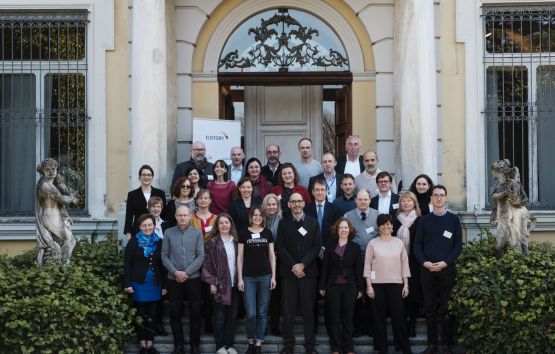
EUSTORY is an informal network of non-governmental organisations carrying out historical research competitions for young people in Europe. The network was initiated by Körber-Stiftung in Germany and it connects more than 30 civic organisations from over 20 countries.
The independent national EUSTORY competitions encourage young people to look for traces of history in their immediate environment. Award winners are invited to join international EUSTORY Next Generation Summits that create spaces for encounters and facilitate dialogue on the shared European history and future.
Since the EUSTORY Network was founded in 2001, some 257,000 young people have participated in EUSTORY History Competitions contributing about 115,000 projects. In addition to those involved in the individual national member organisations, there are more than 2,500 teachers, experts, scholars and volunteers who give their time to EUSTORY and its projects every year.
With its activities, the EUSTORY Network promotes the significance of an independent and critical view on the past for a common European future. It also furthers a European perspective on local, regional and national history, shunning exclusion and promoting understanding.
The mandate of EUSTORY is to view European history from the grass-roots and to recognise the vast diversity of experiences. Opposing the abuse of history as an ideological weapon, EUSTORY emphasises the view of history as a workshop for intercultural understanding in Europe. This view is laid down in the core documents of the EUSTORY Network, the EUSTORY Mission Statement, Rules and Charter. EUSTORY is therefore not only a meaningful initiative of historical grass-roots work in Europe, but also makes an important and pioneering contribution to European efforts toward peace and tolerance.
Since 2014, the EUSTORY History Campus has been providing a public space for young people who blog on topics of history and identity. Its internal platform provides virtual classrooms for pedagogical activities as well as private chatrooms for the Network’s alumni.
